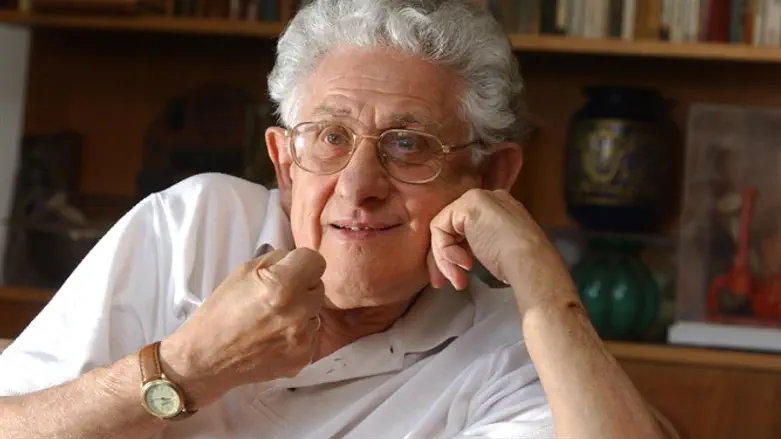
Attorney Elyakim Haetzni, a resident of Kiryat Arba and one of the leaders of Gush Emunim (the "Settlement" Movement) responded on Arutz Sheva to the eulogies being said for former President Shimon Peres.
Haetzni said that it is difficult to summarize the life of a person who held such distinguished but also controversial positions in public life without relating to his entire history.
"We are one nation and one tribe and even though there are bitter disputes, when a person dies we feel pained and identify with the family's sorrow. So I will not talk about Oslo or about the 'dirty trick'(The 1990 attempt to seize power together with the haredi parties, ed.), or the bombing of the Osirak reactor (which Peres opposed,ed.)," said Haetzni.
Haetzni explained that "even the left-wing press spoke about the person who built up the state, equipped the army, built the Dimona nuclear reactor, directed the Entebbe operation and I will add that he eliminated Israel's deadliest enemy at the time- 'The Engineer' (title for the arch-terrorist Yihye Ayyash) who was responsible for many horrifying terror attacks.
"It is interesting that this act unleashed a wave of terror which torpedoed the Oslo agreement and that the Arabs remember this act to Peres' detriment to this day. One should remember that Peres planted a tree in Ofra, helped the first settlers in Sebastia establish a community and even left his fingerprints here in Kiryat Arba."
Haetzni recalled that Peres together with then Finance Minister Yitzhak Modai managed to curb the hyperinflation which existed in the 1980's as well as his many other contributions to the state. "But you'll hardly find anyone mentioning the New Middle East (which Peres envisaged would emerge after the Oslo accords,ed.) or the Peres Center for Peace."
"It is a historical irony or maybe historic justice that Obama, Prince Charles, the Clinton couple, the Pope and who knows who will be at his funeral, but let's count how many Arabs show up, if any at all. How many Arabs whom he placed in their positions in Ramallah by pouring billions of dollars into making them leaders, how many of them will come? Even now they are maligning him."
"In a sense there is a distillation of truth in public opinion over historic periods. In the end public opinion judges and passes justice and in Peres' case with respect to the vision with which he so wanted to be identified, people hardly talk about it, if at all," says Haetzni.
